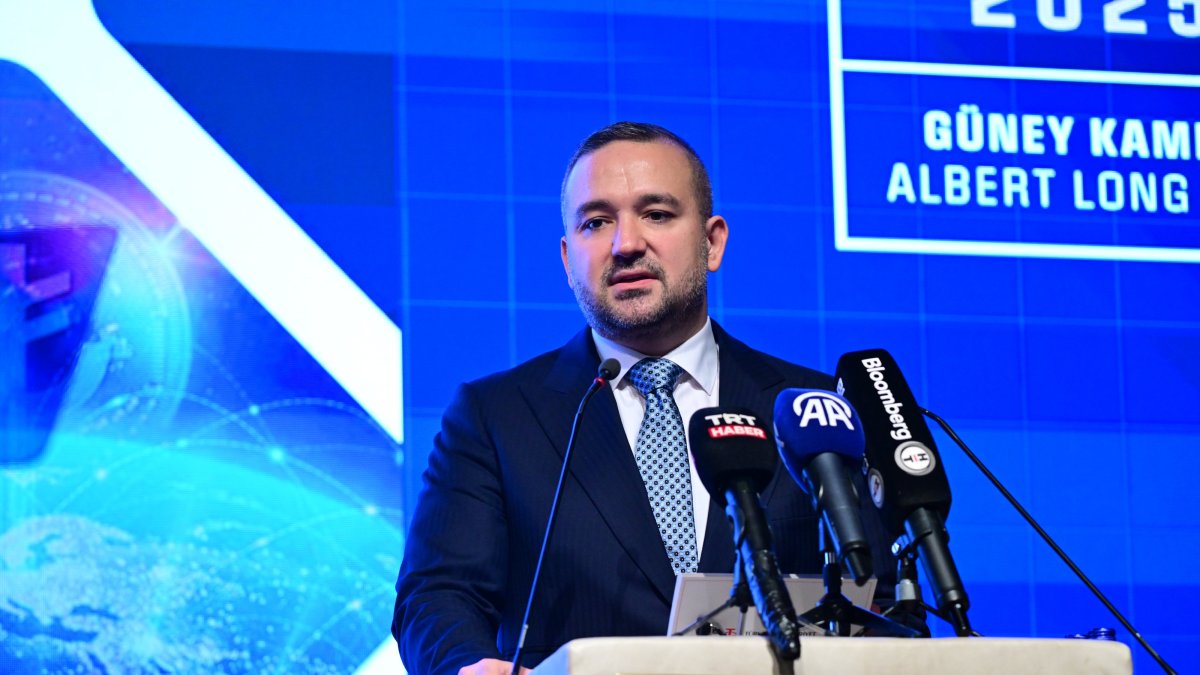The improvement in inflation expectations stalled in April and they remain above the Turkish central bank’s disinflation path, thus necessitating maintaining a tight and decisive monetary policy stance, according to the bank’s governor on Saturday.
Speaking at the two-day summit organized at Boğaziçi University in Istanbul, Central Bank of the Republic of Türkiye (CBRT) Governor Fatih Karahan evaluated recent developments in global and domestic markets, macro outlook and inflation expectations.
“Due to developments in the financial markets in recent times, the improvement in inflation expectations stalled in April. Inflation expectations continue to stay above our disinflation path. This outlook necessitates maintaining our tight and determined stance in monetary policy,” the governor said.
The inflation in Türkiye dropped to 37.9% in April, down from 38.1% in March, according to the official figures from the Turkish Statistical Institute (TurkStat). Annual inflation exceeded 75% in May 2024, before starting to slow in June amid aggressive monetary tightening.
The Turkish central bank hiked its rates through a long cycle that kicked off in the summer of 2023 and gradually began lowering them in December last year as inflation continued to ease. It cut it to 42.5% in early March, before reversing the cycle last month with a surprise 350-basis-point rate hike to 46%.
The bank hiked the rate amid volatility following the arrest of Istanbul Mayor Ekrem Imamoğlu on corruption charges pending a trial, and uncertainty about U.S. tariffs.
Global uncertainty
Related to fluctuations globally, Karahan stated that although a significant portion of the recent tariff decisions have been postponed, uncertainty regarding global trade and economic policies remains high. He suggested that volatility indices are high during this period, as ups and downs are observed in global stock markets.
“These changes in asset prices increase macrofinancial risks on the balance sheets of financial institutions. These uncertainties increase downside risks to global growth, while there are possible effects on inflation that vary from country to country,” he said.
Referring to the monetary policy practices in Türkiye and recent macroeconomic developments, Karahan summarized the tools they use to support the tight monetary stance in three main groups.
“With the arrangements regarding deposits, we aim to increase the share of Turkish lira deposits and gradually reduce the KKM (FX-protected scheme). With the arrangements regarding credit growth, we prevent fluctuations in credit demand. Thirdly, with our steps regarding liquidity, we manage the excess Turkish lira liquidity in the system,” he noted.
Since March, they have also assessed the potential risks that recent developments in financial markets may pose to the inflation outlook and have taken steps to increase monetary tightening, Karahan said.
Inflation, food prices
Furthermore, pointing to the decline in inflation, he said that both the average of the six indicators they use and the median inflation, which has relatively good forecasting performance, “imply that annualized inflation is just above 30%.”
“This indicates that disinflation will continue,” he added.
Additionally, he evaluated the food prices, noting that when looking on an annual basis, they continue to fall but have witnessed an uptick in March due to Ramadan, and then recorded a more moderate increase in April.
“However, the agricultural frost that occurred throughout the country last month increased the upward risks on unprocessed food prices, especially fruit, for the upcoming period,” he continued.
At the same time, he attributed a positive impact of commodity prices on disinflation, as well as weakening domestic demand.
“Commodity prices contribute to disinflation by moving more moderately; foreign demand is weakening. Domestic demand is also weakening thanks to the measures we have taken in monetary policy,” Karahan said.
“On the other hand, considering that uncertainties are higher than in the past, we are exhibiting a cautious and tight monetary policy stance. Our tight monetary policy stance will continue until a permanent decrease in inflation and price stability is achieved,” he concluded.
Turkish central bank, later this month, is set to hold a briefing on the second inflation report this year to provide fresh updates on inflation and the policy path.

The Daily Sabah Newsletter
Keep up to date with what’s happening in Turkey,
it’s region and the world.
SIGN ME UP
You can unsubscribe at any time. By signing up you are agreeing to our Terms of Use and Privacy Policy.
This site is protected by reCAPTCHA and the Google Privacy Policy and Terms of Service apply.
